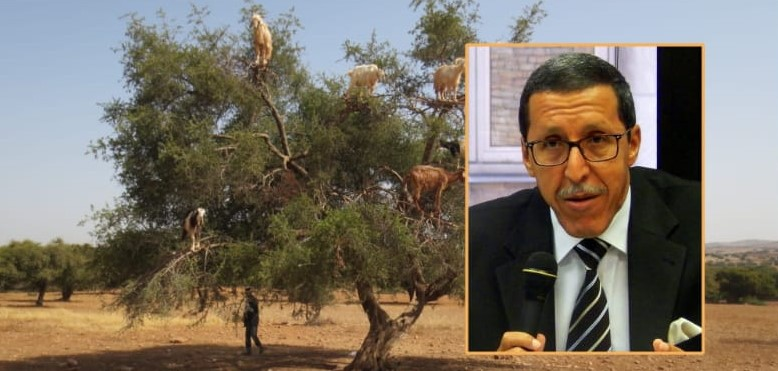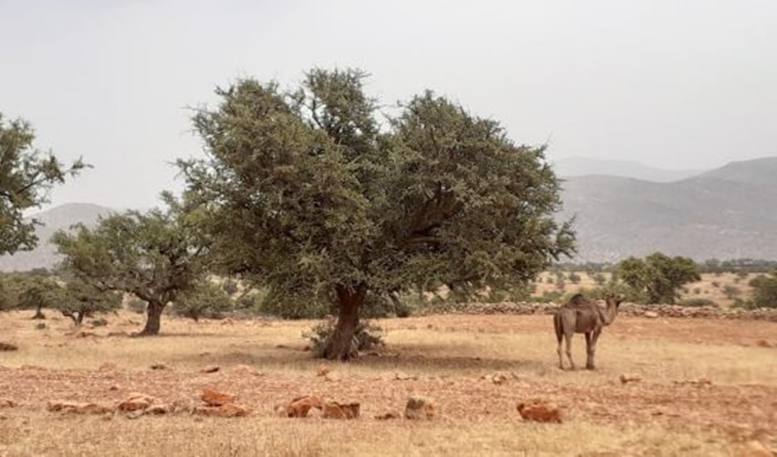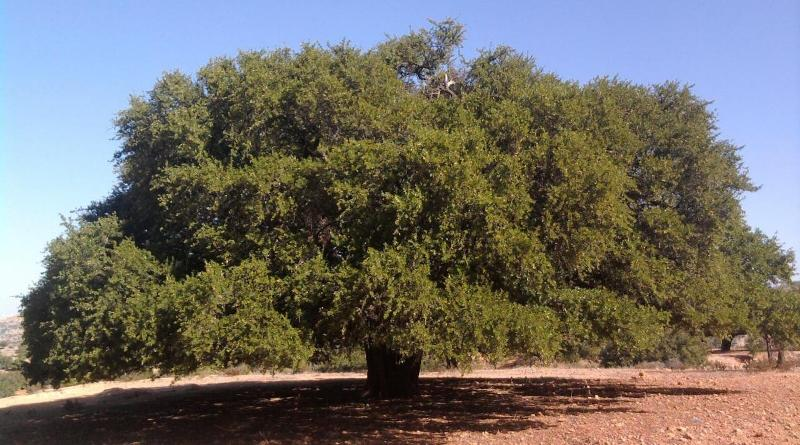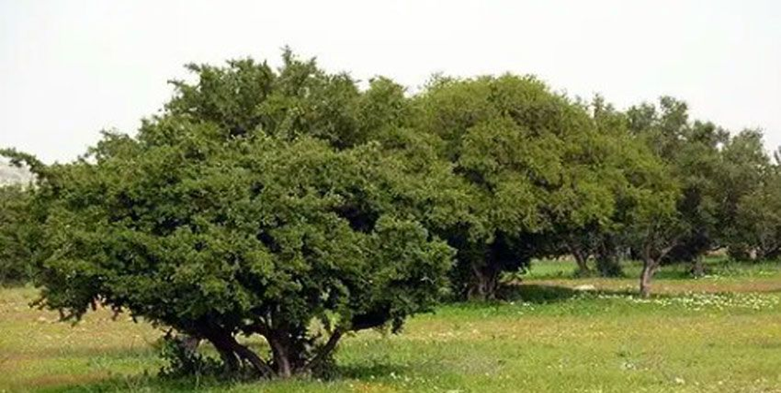Argan tree cultivation is a reflection of the royal policy to serve food security in Morocco and Africa

Ambassador Permanent Representative of Morocco to the United Nations, Omar Hilale, affirmed that Morocco's pioneering strategy in the field of argan tree cultivation, which was implemented in accordance with the high directives of His Majesty King Mohammed VI, is an example of efforts to ensure food security and sustainable development in Africa, and to combat the impact of climate change. .
In an article published in a UN news periodical under the title “Argan cultivation can help combat climate change and support sustainable development,” Hilal highlights the “clear and ambitious” vision of His Majesty the King to achieve food security in Africa, noting that this approach stems from the royal conviction that access To adequate food and resources is essential for a stable and prosperous Africa.
The ambassador said that this approach includes increasing agricultural productivity in Africa, by investing in sustainable agricultural practices, such as organic farming, as well as improving irrigation and water management techniques, noting that His Majesty the King launched many initiatives, such as the Green Morocco Plan, which aims to modernize The agricultural sector in the country and improving the food security of Moroccans.

In this article, published on the occasion of the International Argan Day, corresponding to May 10, the diplomat notes that Morocco attaches special importance to reducing poverty and inequality in the African continent to which it belongs.
Helal stressed the importance of sustainable economic growth and the creation of job opportunities to achieve food security, explaining that Morocco has given priority to investing in infrastructure, education and technology, and establishing many vocational training centers in rural areas to provide young people with the competencies they need to pursue professional paths in the agricultural field.
The ambassador touched on combating the impact of climate change in Africa, highlighting that Morocco organized, at the initiative of His Majesty King Mohammed VI, the first summit of African Action for a Continental Emergence, during the 22nd session of the Conference of the Parties to the United Nations Framework Convention on Climate Change (COP-22). held in Marrakesh in 2016.
He pointed out that this summit made it possible, under the royal leadership, to launch three African climate committees, namely the climate committee for small island states, the climate committee for the Congo Basin, and the climate committee for the Sahel region, which Morocco supports politically, technically and financially.
Helal added that Morocco's vision to achieve food security in Africa is characterized by its comprehensive and multiform nature, especially as it highlights the interdependence between agriculture, poverty reduction, economic growth and climate change, and aims to solve these problems in an integrated and sustainable manner.
"By commemorating the International Argan Tree Day, we also hope to achieve a continuous dynamism that supports solutions envisioned in Africa and where everyone has access to adequate food and resources produced locally," he added.
In the same context, the Permanent Representative of Morocco to the United Nations affirmed that the Kingdom has become, thanks to the leadership of His Majesty the King, a major player in the dynamics of South-South cooperation, including in the field of food, highlighting that the Kingdom continues to provide its support for agricultural development in other countries in Africa, as well as in the Caribbean and the Pacific.
In this regard, he touched on the Moroccan initiative aimed at providing subsidized fertilizers to these countries, especially those vulnerable to food insecurity, explaining that this program had "achieved great success" and contributed to significant increases in agricultural productivity in the beneficiary countries.

In addition to this initiative, Morocco has also provided technical support and capacity-building experience to other African countries in a number of agricultural fields, including water management, soil conservation and crop diversification, while contributing to improving the efficiency and productivity of farming systems and developing value-added industries in Africa.
Regarding Morocco's commitment to promoting regional trade, the ambassador said that the Kingdom aims to create new markets for agricultural products and contribute to the development of more integrated and sustainable regional food systems.
"By sharing its expertise and resources with other countries, Morocco has demonstrated its commitment to making the pressing challenges of food security and poverty reduction a success in our region, and has contributed to the emergence of stronger and more resilient societies across Africa and with various other countries of the South," he added.
In response to a question about the possibility of repeating the successful experience of argan tree cultivation in other regions of the world, Omar Hilal indicated that this goal remains achievable and that other countries can draw inspiration from the best practices developed by Morocco in this context.

To do this, Helal explains, “sustainable agroforestry practices related to protected trees or other plant varieties can be applied, prioritizing the preservation of natural ecosystems and scientific research, as well as the socio-economic development of communities that depend on these ecosystems.”
In this context, he considered that it is possible to develop partnerships and initiatives to exchange knowledge between Moroccan actors, international organizations, researchers and practitioners, adding that sustainable land use practices that promote the growth of argan forests can help mitigate the effects of climate change, which is a global challenge.
This year's International Argan Tree Day was celebrated at the United Nations Headquarters in New York, on the theme of "Local Socio-Economic Development and Sustainability of the Argan Ecosystem".
On this occasion, a photographic exhibition will be organized until May 25, which provides a glimpse into the peculiarities of this tree endemic to Morocco, which is included in the intangible cultural heritage of humanity.
A high-level session was also organized, at the initiative of the Permanent Mission of Morocco to the United Nations. The meeting witnessed the participation of the Minister of Agriculture, Fisheries, Rural Development, Water and Forests, Mohamed Siddiqui, via a recorded video, as well as many high-level UN officials, including the Deputy Secretary-General of the United Nations, Amina Mohamed, and the Director-General of the Food and Agriculture Organization (FAO).
Source : websites

